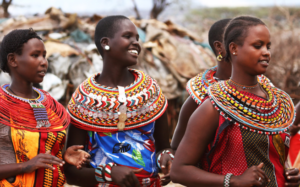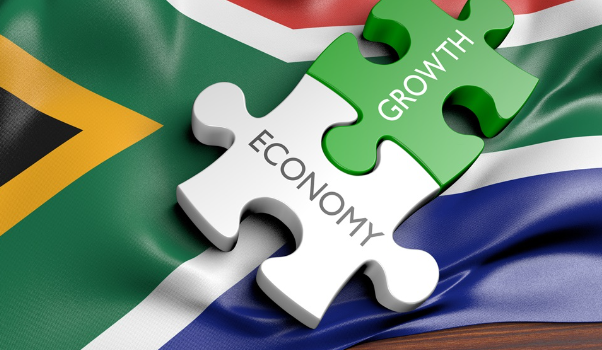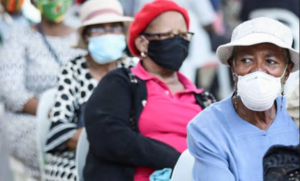The COVID-19 pandemic, a global health crisis of unprecedented proportions, has left no continent untouched. Africa, with its diverse economies and unique challenges, faced significant disruptions as the virus spread rapidly across the region. This article delves into the detailed impact of the COVID-19 pandemic on African economies, exploring its effects on various sectors, human development indices, and policy responses.

The Economic Shockwaves: GDP Contractions and Trade Disruptions
The pandemic caused severe economic shocks across Africa, leading to GDP contractions and disruptions in trade. With travel restrictions and lockdown measures imposed to curb the virus’s spread, many businesses had to shut down temporarily or operate at reduced capacity, resulting in significant revenue losses and job cuts. As a consequence, African economies witnessed a sharp decline in economic activities and an increase in unemployment rates. Industries such as aviation, hospitality, and manufacturing suffered the most, exacerbating the economic crisis.
Strained Healthcare Systems and Human Development Challenges
The COVID-19 pandemic exposed the vulnerabilities of healthcare systems in Africa. Limited healthcare infrastructure, inadequate access to medical supplies, and a shortage of healthcare workers strained the region’s ability to manage the pandemic effectively. High infection rates put immense pressure on hospitals, leading to a strain on health resources and negatively impacting human development indicators such as life expectancy and healthcare access. The pandemic highlighted the urgent need for investments in healthcare infrastructure and capacity-building across the continent.
Impact on Trade and Supply Chains
African economies heavily reliant on trade faced disruptions in global supply chains due to the pandemic’s impact on international logistics. Export-oriented industries, particularly in sectors like agriculture and manufacturing, faced challenges in accessing international markets, leading to a decrease in export revenues. Import-dependent countries experienced difficulties in obtaining essential goods and medical supplies, further straining their economic stability. The pandemic exposed the need for economic diversification and regional trade integration to reduce vulnerability to global shocks.
Tourism and Hospitality Sector Downturn
The tourism and hospitality sectors, vital contributors to many African economies, experienced a drastic downturn during the pandemic. Travel restrictions and border closures led to a significant decline in international tourist arrivals, resulting in revenue losses for hotels, airlines, restaurants, and related businesses. For countries heavily reliant on tourism, this downturn had far-reaching effects on employment and economic growth.
Impact on Informal Sector and Vulnerable Populations
The informal sector, a significant source of livelihood for many Africans, bore the brunt of the pandemic’s economic impact. With lockdowns and restrictions affecting mobility and trade, many informal workers lost their sources of income, leading to increased poverty and economic vulnerability. Vulnerable populations, such as women and informal labourers, faced heightened risks of falling into poverty.
Fiscal and Monetary Policy Responses
Governments across Africa responded to the economic crisis with fiscal and monetary measures aimed at mitigating the impact of the pandemic. Many countries introduced stimulus packages to support businesses and households, providing financial assistance, tax breaks, and concessional loans. Central banks implemented monetary policies, including interest rate cuts and liquidity injections, to ease credit access and support financial stability. Some governments also collaborated with international financial institutions to secure financial assistance and debt relief.
Digital Transformation and Innovation
The pandemic accelerated digital transformation in many African economies. Governments, businesses, and individuals adopted digital tools and technologies to adapt to the “new normal.” E-commerce, telemedicine, and remote work gained prominence, presenting opportunities for economic diversification and growth in the digital economy. Governments and private sectors invested in digital infrastructure and capacity-building to enhance digital literacy.
Conclusion
The COVID-19 pandemic had a profound impact on African economies, causing widespread economic disruptions, human development challenges, and changes in trade dynamics. While the pandemic exposed weaknesses in healthcare systems and socio-economic inequalities, it also prompted innovative solutions and the adoption of digital technologies. As Africa continues to navigate through the pandemic’s aftermath, policy measures aimed at strengthening healthcare systems, promoting economic diversification, and addressing vulnerabilities will be crucial to fostering resilience and sustainable growth in the region. With concerted efforts, Africa can recover from the pandemic’s adverse effects and build a more resilient and inclusive economy for the future.









 Africa is now home to more than 1000 languages and almost 500 ethnic groups. The continent has also experienced rapid growth in recent years, especially in sub-Saharan Africa. In 1900, less than half of Africans lived within a 100-kilometer radius of each other. Today, over 50% live within 100 kilometers of their neighbors. This dramatic change happened because of colonial rule and increased trade between African countries. What was life like in Africa before the Europeans arrived? Learn some interesting facts about Africa’s history and culture at the beginning of the 20th century.
Africa is now home to more than 1000 languages and almost 500 ethnic groups. The continent has also experienced rapid growth in recent years, especially in sub-Saharan Africa. In 1900, less than half of Africans lived within a 100-kilometer radius of each other. Today, over 50% live within 100 kilometers of their neighbors. This dramatic change happened because of colonial rule and increased trade between African countries. What was life like in Africa before the Europeans arrived? Learn some interesting facts about Africa’s history and culture at the beginning of the 20th century.




